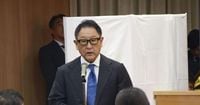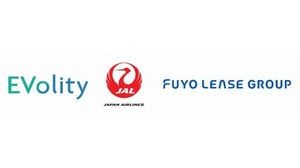On April 26, 2025, Toyota Motor Corporation announced that it is considering investing in Toyota Industries Corporation's plan to take the company private. This development comes amid ongoing discussions within the Toyota Group about the future structure of its capital relationships. Toyota stated that they are "currently examining various possibilities, including partial investment" in response to reports about the potential privatization of Toyota Industries.
The Toyota Group, which includes several subsidiaries, is looking to streamline its capital ties, particularly as market pressures demand the dissolution of cross-shareholdings. Toyota Industries, the founding company of the Toyota Group, has a significant stake in both Toyota and Denso, holding approximately 9% of Toyota's shares and 5% of Denso's shares. This cross-holding structure has raised concerns about governance and operational efficiency, prompting Toyota to consider a more consolidated ownership model.
According to sources close to the discussions, one option on the table includes establishing a special purpose company (SPC) to facilitate a tender offer (TOB) for shares of Toyota Industries. This move is seen as a way to enhance governance and operational flexibility within the group. However, the feasibility of such a buyout remains uncertain, with estimates suggesting that the acquisition cost could reach several trillion yen, far exceeding the current market capitalization of Toyota Industries, which stands at around 4.3 trillion yen.
Recent years have seen intensified scrutiny from overseas investment funds, which have been pressing for more efficient asset utilization from shareholders. Additionally, Toyota Industries has faced challenges, including issues related to engine certification irregularities, which have further complicated its operational landscape. As a result, the core company, Toyota, is keen on privatizing Toyota Industries to secure greater management autonomy and strengthen its governance framework.
Founded by Sakichi Toyoda in 1926 as Toyoda Automatic Loom Works, Toyota Industries has a rich history in manufacturing, originally focused on textile machinery. The company has since diversified into producing forklifts and automotive parts, becoming an integral part of the Toyota Group. Akio Toyoda, the current chairman of Toyota Motor Corporation, is the great-grandson of Sakichi Toyoda, continuing a legacy of innovation and leadership within the family-run enterprise.
Sakichi Toyoda was born on February 14, 1867, in what is now Kosai City, Shizuoka Prefecture. His early inventions included a wooden manual loom, and he was pivotal in advancing mechanization in the textile industry. His most notable achievement was the creation of Japan's first power loom, the "Toyoda-style steam power loom," in 1896. This innovation not only propelled the company forward but also laid the groundwork for future expansions into the automotive sector.
Kiichiro Toyoda, Sakichi's eldest son, played a significant role in the establishment of the automotive division, which eventually led to the formation of Toyota Motor Corporation in 1937. His vision for the company was solidified after the Great Kanto Earthquake of 1923, which devastated the railway system and spurred a rapid increase in automobile demand.
As discussions about privatizing Toyota Industries progress, the implications for the entire Toyota Group are significant. The potential restructuring could lead to a more unified corporate strategy, allowing for better resource allocation and enhanced competitiveness in an increasingly globalized market. The move may also address the shareholders' calls for improved governance and operational transparency.
Despite the challenges and uncertainties surrounding this potential acquisition, Toyota remains committed to exploring all avenues to optimize its corporate structure. The company has emphasized that no final decisions have been made and that it will disclose any significant developments promptly.
As the situation evolves, stakeholders within the Toyota Group and the broader market will be watching closely. The outcome of these discussions could reshape the future of one of Japan's most iconic automotive manufacturers and its foundational companies.





